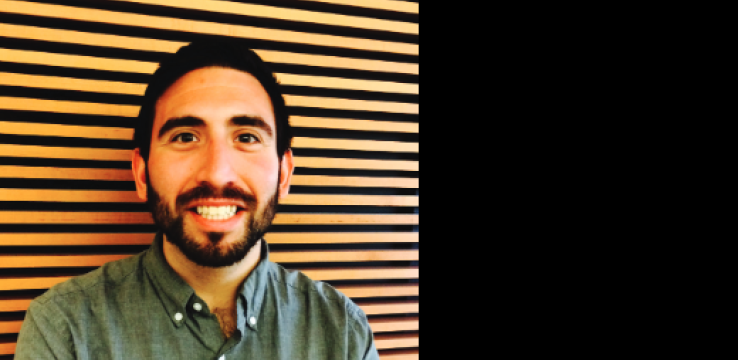
We met Dan Schulman at the SPUR Member Party in San Francisco this past June. He had moved to San Francisco just a few days prior to start work as BAE Urban Economics’ new associate, where he’ll be involved with fiscal impact analysis and market studies for economic development and transportation initiatives statewide We were completely taken with his enthusiasm for all things urban and how, having just arrived here had he ended up at SPUR? And had he found an apartment yet?
“After a stint in the Peace Corps,” he explained, “I came back to Maine and joined a coalition to advocate for sustainable transportation there. SPUR was one of a few leaders in effective advocacy and research that we looked to as a source for ideas. Recently, I was reminded of this work by a colleague. I reacquainted myself through the website and met staff at one of the Friday de Young Museum events my first weekend here in the city and then joined as a member immediately. The SPUR party affirmed my decision and I’m excited to get more involved.”
How did you first get interested in cities?
When people ask me how I got interested in cities, it really strikes a chord because the question really asks how I chose urban planning as a career. Before moving to Maine for high school, I was raised in the lower working class neighborhood in Canarsie, Brooklyn. Honestly, we could barely afford to keep up with public transit expenses. When the unlimited Metrocard was implemented in the 90s, it let me escape home and take advantage of city resources (parks and libraries), but also challenged my teenage naiveté. It seemed peculiar to me how a seemingly innocuous innovation like the Metrocard (with all of its perks and flaws) can improve access to opportunity. More importantly, city exploration forced me to confront my own privilege and learn about institutionalized oppression and power dynamics. Later on, in high school, I became a host and journalist with a youth radio program focused on local city and youth affairs which gave me an outlet to ask the right questions and challenge assumptions. This led to social justice, community organizing, and eventually to the field of planning.
You’re new to San Francisco. Based on your first impressions, what is the city doing right? What does it really need to fix?
As someone new, I’m reserving judgment until I have more information. I’m focused more on listening to what people care about and what sets them on edge. What I’m hearing is that residents are concerned about transportation, affordable housing and displacement. Six weeks in, I still haven’t found an affordable place, so that tells me something. [At press time, Dan had found an apartment]
It’s also apparent that the Bay Area struggles with food deserts. As someone without a car, it is a concern for me and I know my situation is not unique. People’s Grocery in West Oakland presents a creative partial solution, but ultimately these issues need to be addressed by the city and the region as part of a broader system.
What’s your favorite city?
New Orleans. Besides the fact that I’m a fan of crawfish boils and the confluence of culture, the people in that city are more resilient than any of us will know. It is a deeply complicated city, but authenticin every way.
Favorite urban view?
The Top of Table Mountain, Cape Town, South Africa. When your legs are killing you after the hike, you know it was worth it.
Favorite film about cities?
Spike Lee’s, Do the Right Thing. It’s a snapshot of life in a Brooklyn neighborhood, of course. Over 25 years later, it still provokes a visceral reaction and engages folks from all walks of life in a discourse on tough issues that are still incredibly relevant in cities across the U.S. today.
